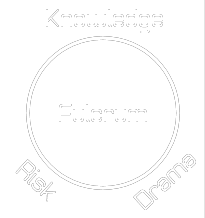Table of Contents
Science Adventure
Science Adventure is a genre term for fiction I am coining for my own personal use. It is directly inspired by the game franchise of Nitroplus, as described here: Science Adventure Franchise. I first encountered the concept in an anime called Steins;Gate which is based on the game of the same name from Nitroplus. Steins;Gate is described by its creators as a “hypothetical science adventure game” which I feel is pretty accurate, but falls quite short on what Science Adventure implies as I see it. I was puzzled at first on how to define what I mean by the term, but then a show called Farscape rescued me.
Definition
I can clearly define Science Adventure in fiction by defining what it is not (definition by contrast). It lacks the romance of Space Opera, it lacks the grit and focus of Hard science fiction, and it lacks the weapons and battle focus of Military science fiction. It lacks the trappings, though often shares concepts with Cyberpunk, it is not centered on a post-apocalyptic or dystopian world, and is not a simple skin on top of the old west in space. It is not derivative of social centered Soft science fiction, and while it can and often explores concepts like Time Travel and Superhuman (common Science fiction subgenres) it is not specifically about them.
Alright, when you rule all this out what is left? I could simple say I want Science Fiction itself and drop the whole idea of Science Adventure, but that blanket terms encapsulates more than I want to include. It is still clearly Science Fiction though, as it explores the potential consequences of scientific and other innovations. Let's see if I can draw more insight from two parts of the term itself: Science, and Adventure. Adventure fiction is a genre of fiction in which an adventure, an exciting undertaking involving risk and physical danger, forms the main storyline. Critic Don D'Ammassa argues that adventure stories make the element of danger the focus of the fiction^, and I am inclined to agree. I'd call this risk though, and make that central to the concept. Science is at its root the pursuit of knowledge. It can also be used in modern language to define knowledge itself, e.g. computer science. Boiling down the term to its most basic form: Risk from knowledge, or the pursuit of knowledge.
That doesn't really tell us too much though, since in that broad definition the fiction outside the Science Fiction genre fit easily. It is just too broad, let me give it more focus. In the fiction that inspired me to coin the term the central protagonists all have rich lives of their own, drama, that is explored over the course of the stories. I can call Science Adventure: The exploration of character drama as it intersects with risk from knowledge, or the pursuit of knowledge. Science Adventure is daring, dangerous fiction that makes you think. I think this definition is focused enough and allows me to include other sources that fit such as myriad Outer Limits episodes.
Concepts
The three central concepts of science adventure: drama, risk, and knowledge are all equally important. None of these is placed above another, no individual part is more valuable or the specific focus of the fiction, except perhaps at any one particular moment. Each on the same level, each feeds into the next in a triangular manner.
It is important to note the concept of drama here is not the theatrical definition, but the common language one: turmoil in real life. The issues and drama of a character within the fiction, the matters that way on them and press them into action. If a character was shot through a wormhole into another galaxy and forced to find a way to survive, that part of their drama.
On the sides of the triangle above are moments of the fiction of interest, where Risk meets Drama and Knowledge meets risk and so on. The center of the triangle is the center of everything, a basic idea that spurs action in the fiction. In the anime Steins;Gate, it is “choice of Steins;Gate” as Okabe calls it. You could say it is the central focus of the fiction, and while it may never directly be addressed, it is explored through all the intersects on the sides of the triangle. I'd call this the Fulcrum of the fiction, it is what gets the story going and influences everything. The central focus of Steins;Gate is “the choice of Steins;Gate” or put in specific terms: the ideas of choice and worldlines in one particular view of time travel. Let's ditch the triangle and look again at all the concepts:
Alright, looks good. Fulcrum is the central idea that interacts with everything that orbits it. What is that while line that orbits it? The moments where the fulcrum and concepts interact to create dramatic situations in play, Crises. Each of these a dot somewhere on that line that is a specific moment of intense instability that leads to decisive change in the fiction. In the TV show Farscape, the Fulcrum would clearly be “The implications of wormhole technology”. When Scorpius learns that John Crichton has such knowledge locked into his brain and captures him, that is a Crises in this sense.
Implications
(To be written)
Usage
Science Adventure is the basis of the Centaurus Gate roleplaying game. All of the concepts above and tied directly to the game: Fulcrum, Risk, Drama, and Knowledge.



